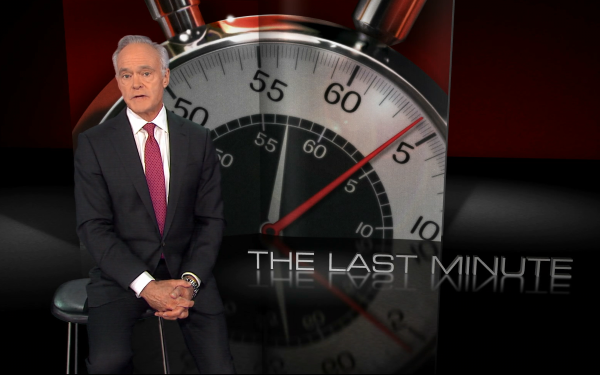
The force of the message lay in the manner in which it was delivered by Scott Pelley at the conclusion of “60 Minutes” Sunday night on CBS.
In the buttoned-down tradition of CBS News, Pelley faced the camera in the show’s “Last Minute” segment and calmly reported that the parent company of CBS, Paramount
Global, is meddling in the production of “60 Minutes” for business reasons.
In the interest of accuracy, he used the word
“supervising.” It was this “supervision,” said Pelley, that led last week to the resignation of the show’s executive producer, Bill Owens, a CBS News veteran who was
respected and well-liked.
“Stories we’ve pursued for 57 years are often controversial,” Pelley said. “Lately, the Israel-Gaza war and
the Trump administration. Bill made sure they were accurate and fair. He was tough that way.
advertisement
advertisement
“But our
parent company, Paramount, has tried to complete a merger,” he continued. “The Trump administration must approve it. Paramount began to supervise our content in new ways. None of our
stories has been blocked, but Bill felt he lost the independence that honest journalism requires.”
And with that, the story was out. Paramount Global
has been exerting pressure on “60 Minutes” to take it easy on Trump so he won’t stand in the way of the company’s multibillion-dollar merger with Skydance Media.
This one sentence -- “Paramount began to supervise our content in new ways” -- was portrayed as a bombshell by the news media on Monday, and so it
was.
Until now, this corporate interference had never been stated or otherwise confirmed publicly by anyone, not even Owens himself in the farewell memo he
circulated to CBS News and “60 Minutes” colleagues last week.
Good for “60 Minutes” for rebuking the parent company on one of the
company’s most successful shows. But what about the details?
If Paramount never went so far as to
“block” any “60 Minutes” stories, then what form did these “new ways” of “supervising” of the show take? By what means was pressure applied to such an
extent that the producer quit?
Maybe it wasn’t any one thing, but an accumulation of relatively small things that added up to an intolerable encroachment on the
show’s decision-making process -- its “independence” from corporate interference.
Maybe it came in the form of phone calls or emails from
higher-ups who Owens had never in his career ever heard from before.
Maybe they said things like “Do you really have to do that story
that way right now?”
Or “C’mon, Bill, the company’s between a rock and hard place, and we will all benefit from this merger,
even you. If you would only reconsider moving that story to later this month …”
Or “What if you did the story this way?” Or
“What if you left this particular, teeny-tiny thing out of the story? We feel the story would still be fine.” Maybe these communications came with veiled threats of some kind.
If such things or things like them happened, then since none of the stories were blocked, Owens must have successfully fended them off every time. If that was the case,
what was the final straw that led him to resign?
It is one thing to level an interference accusation at Paramount in a one-minute bit tacked on to the end of
the show.
But it is another to take the situation to the next level, and actually give this story the “60 Minutes” treatment.
This would be a follow-up to Pelley’s one-minute message in the form of a full-on “60 Minutes” investigation of how Paramount sought to exert its
influence over the show and its producer for business gains, complete with examples and testimony from multiple sources.
These could include Owens himself,
who is in the best position to tell us all what happened because they happened to him.
In his message,
Pelley described Owens as a worldly journalist who had covered combat. So, why did he decide that resigning, rather than continue fighting, was his only option?
Photo: Scott Pelley in a screenshot from Sunday’s “60 Minutes” on CBS.